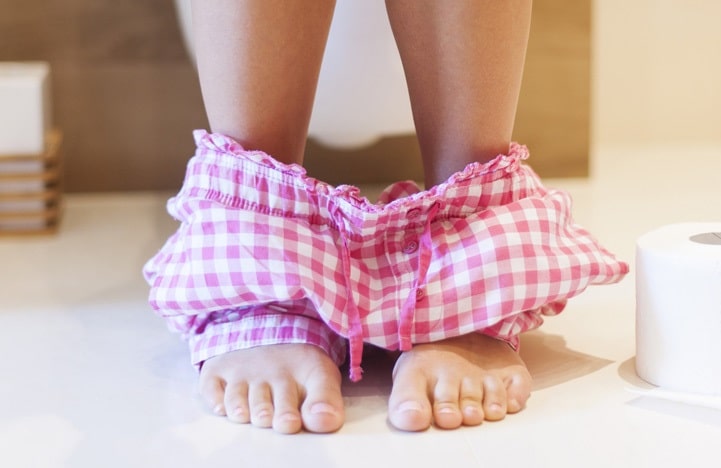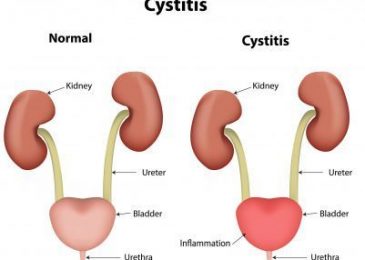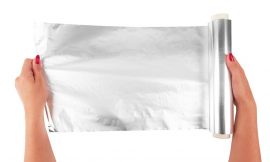
A known urinary tract infection, cystitis is the inflammation or infection of the bladder, resulting in the constant need to use the toilet. The symptoms are believed to include a burning sensation, frequent need to urinate, and cramps in the abdomen, and lower back. It has been reported that women are 25 times more likely to develop it than males are.
It is said that anyone, from babies to elderly women, may suffer from it. It may be started by sexual activity, feeling hot and sweaty, or being overexposed to chemicals. However, the most well-known cause is said to be E.Coli bacteria, which are micro-organisms that inhabit the bowel and intestines.
They are believed to be essential for good health as it is reported that if they make their way to the bladder they might start off cystitis; however, the most well-known cause is said to be an enlarged prostate. Cystitis might turn into a more serious condition, such as a kidney infection, which may be witnessed by fever, backache, and shaking. Thus, it is thought to be vital to treat cystitis as early as possible.
What is Cystitis

Acute uncomplicated cystitis is an inflammation, an infection of the bladder. It is an infectious disease caused by bacteria (in about 70% of cases caused by Enterobacteriaceae-type Escherichia coli) that go back in the urinary bladder. Cystitis is often caused by contaminated feces. 10% to 20% of women are affected every year by cystitis, making it a leading cause of medical consultation. Note that 10% of women with cystitis may suffer from recurrent cystitis and in this case, a medical consultation is required.
Cystitis diagnosis and Cystitis symptoms
The symptoms of cystitis are typical and may be sufficient for diagnosis. Usually, test urine with a dipstick is enough for the diagnosis. This can be achieved at your doctor’s. Your doctor may want to consider the bacteriological examination of urine, produced in the laboratory because it allows him to precisely identify the bacteria involved and test the antibiotics that are active on this bacterium. In nine out of ten cases, the bacterium in question is an intestinal bacterium called Escherichia coli (or E. coli). As soon as the strip confirms the diagnosis, one must take active treatment for E. coli.
A person with cystitis always wants to urinate. Urine output is often low. The emission of urine is difficult, and painful and is usually associated with a burning sensation felt in urination. Cystitis pain can also be found in the back or lower abdomen. In cystitis, it should be noted that sometimes the urine emits a bad smell. Cystitis is often without serious consequences, but in some cases, cystitis can lead to complications, such as the development of kidney infections. In case of suspicious symptoms (like blood in urine), discuss this immediately with your family doctor.
Cystitis Symptoms – Signs of Cystitis
Pain when urinating and the irrepressible urge to urinate even when the bladder is empty are two cardinal signs. Sometimes the pain is small but the urine can feel very ill, because of pus. Doctors speak of “acute simple cystitis” for simple cystitis and “recurrent cystitis” where more than three episodes appear in a year. The recurrent cystitis is “complicated cystitis”, and presents the risk of further complications in the elderly, pregnant women, diabetic or immunocompromised persons. The examinations and treatment differ depending on the case.
Risk Factors for Infectious Cystitis
Some girls have bladder instability that prevents them from properly controlling urination and are more vulnerable to cystitis and pyelonephritis. Vaginitis (vaginal infections) are microbial markers that can cause urinary tract infections. Infectious cystitis is also favored by constipation, hygiene, or excessively neglected sex that does not have a rapid emptying of the bladder to wash the urethra.
Cystitis Complication
Cystitis rarely causes complications. However, in some cases, when treatment is inadequate or nonexistent, bacteria can go back to the kidneys, and this is known as nephritis or pyelonephritis. This kind of complication is very problematic.
When Should You Consult a Doctor?
About one in three cystitides heal themselves, by drinking a lot (about 3 l per day) and urinating often. But if symptoms do not disappear after 24 hours, consult a doctor and treat them with antibiotics. Symptoms of pyelonephritis: fever, back pain with or without urinary pain. If you have these symptoms you may require an urgent consultation.
How to prepare for the consultation?
It is important to explain to your doctor what are the symptoms and clear signs that refer to a urinary tract infection, and under what circumstances it is triggered (sex, stress). Mention the presence of vaginal infections if this is the case.
Cystitis – the Risk of Recurrence
The main problem of cystitis remains its recurrence. To reduce the risk, drink water in abundance (at least one and a half liters per 24 hours), be sure to urinate after intercourse. Warning: Avoid frequent douching and intimate washing. Repeated too often will destroy your natural flora. After all urination, you wipe from front to back and not vice versa. This simple gesture avoids reducing intestinal germs in the vulva and reinfecting you. Avoid certain foods and beverages that are suspected to promote crises: spices, wines, and spirits, including beer. Your doctor can prescribe a minimum assessment, with radiological examinations. It may also prescribe medications (urinary antiseptic) to be taken at regular intervals or after sex.
How to Prevent Bacterial Cystitis in Women?
You must drink at least 2 liters a day, empty the bladder, and urinate often after sexual intercourse to prevent the germs present in the perineum and vagina to go back to the bladder. These tips are valid for processing, but also for preventing recurrence. White wine, champagne, or some spices could also encourage cystitis. Cranberry juice showed an antibacterial effect and prevention against cystitis. It prevents cystitis by reducing the setting of certain bacteria (Escherichia coli) in the urinary tract walls. It is consumed as a juice or tablet. This is something new but does not replace antibiotics.
Cystitis Treatment – with Natural Baking Soda
For the natural cystitis remedy, you prepare a cocktail of bicarbonate of soda. At the first sign of symptoms, mix half a teaspoon of baking soda in two and a half liters of water and drink it several times. Please do not take baking pure because it burns instead of helping as a treatment.
Cystitis Pain
Those who are suffering from cystitis feel pain when they are urinating. They also feel the need to urinate urgently several times a day. Urine color is often abnormal. The urine may contain blood. Its odor is very strong. Many factors can cause cystitis: sex, stagnation of urine in the bladder, and intimate hygiene products that are too aggressive. There are some simple precautions to take.
The first step is to drink enough water, at least 1.5 liters daily, and regularly go to the toilet. This is the best way to remove germs responsible for infections. There are other patterns to choose such as hygiene products with neutral pH, and avoiding materials that encourage perspiration and the proliferation of germs, such as lycra.
Drink a glass of water every hour for eight hours. Drink plenty of fluids which increases your urine output. It eliminates bacteria that try to invade the cell walls. It is advisable to continue to drink water until the color of the urine becomes clear. According to a recent study, cranberry juice can prevent bacteria from sticking to cells that invade the urinary tract. This can be beneficial for people suffering from cystitis since this treatment will help to eliminate bacteria and ensure a speedy recovery.
Eating habits are also important. Indeed, white wine, champagne, and some alcohol are not recommended as they affect the pH of urine and promote the proliferation of germs.
Various Natural Aids for Preventing Cystitis
Cystitis, an inflammation of the bladder, is a condition that affects many individuals, predominantly women. The discomfort and inconvenience caused by recurrent cystitis can be significant, impacting daily life and well-being. While medical intervention is crucial in severe cases, there exists an array of natural remedies that may aid in preventing cystitis or reducing its frequency and severity.
The Power of Hydration
Hydration is the cornerstone of bladder health. Adequate fluid intake, particularly water, helps in flushing out bacteria and toxins from the bladder. It’s recommended to consume at least eight glasses of water daily to maintain optimal hydration levels. Additionally, incorporating cranberry juice into your daily routine can be beneficial due to its ability to prevent bacteria from adhering to the bladder walls.
Dietary Modifications for Prevention
Dietary modifications play a pivotal role in preventing cystitis. Consuming a diet rich in probiotics such as yogurt, kefir, and fermented foods can help maintain a healthy balance of good bacteria in the gut and urinary tract, potentially reducing the risk of infections.
Moreover, avoiding caffeine, spicy foods, and alcohol can prevent irritation to the bladder lining, thereby reducing the likelihood of cystitis flare-ups. Vitamin C-rich foods, known for their immune-boosting properties, can also aid in preventing urinary tract infections by acidifying the urine, making it inhospitable for bacteria.
The Importance of Personal Hygiene
Maintaining good hygiene practices is paramount in preventing cystitis. Always ensure thorough cleansing before and after intercourse to minimize the risk of introducing bacteria into the urinary tract. Opt for unscented and gentle products to avoid irritation to the genital area, reducing the likelihood of inflammation.
Herbal Remedies and Supplements
Several herbal remedies and supplements have shown promise in preventing cystitis. D-mannose, a naturally occurring sugar, has gained attention for its ability to prevent bacteria from adhering to the bladder walls, potentially reducing the risk of infections. Additionally, proanthocyanidins found in cranberries have been linked to preventing the adhesion of bacteria in the urinary tract.
Lifestyle Adjustments for Preventing Recurrence
Lifestyle adjustments can significantly impact the frequency of cystitis episodes. Regular exercise not only boosts overall health but also promotes a robust immune system, which plays a crucial role in fighting off infections. Furthermore, practicing stress management techniques such as meditation, yoga, or deep breathing exercises can help reduce the impact of stress on the body, potentially lowering the risk of cystitis flare-ups.
Seeking Professional Guidance
While natural remedies offer promising avenues for preventing cystitis, it’s essential to consult with a healthcare professional for personalized guidance. They can provide tailored advice based on individual health conditions and suggest suitable natural aids that complement medical treatments.
Conclusion
In conclusion, preventing cystitis involves a multifaceted approach that includes dietary modifications, hydration, hygiene practices, herbal remedies, lifestyle adjustments, and seeking professional guidance. Incorporating these natural aids into your daily routine may contribute significantly to reducing the frequency and severity of cystitis episodes.




